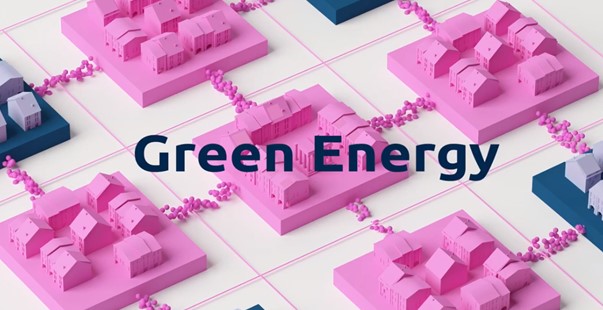Peer-to-peer (P2P) platforms allow energy sharing and trading within a community without the binding mediation of the traditional big utilities. Users are not just consumers but also “prosumers”, who produce energy from their own sources such as rooftop solar panels and electric vehicles. That’s why these platforms might revolutionise the energy market, as Uber and Airbnb have done in the transport, food delivery and tourism sectors.
Natasha Karatza, expert in Behavioural Economics, explains: “P2P platforms can connect people and empower them to share units of energy in many cases. They can be prosumers who want to give their surplus of energy to neighbours. They can monetise it or donate it to help other residents in paying their bills.”
“Such P2P energy donation platforms have been developed by the retailers GEG in France, HERON in Greece and Direct Energy in the US, which activated social responsibility programmes to support low-income residential customers suffering from energy poverty. In particular, the American company used this model to start a campaign to provide financial aid for the victims of the hurricane Harvey, which hit Texas and Louisiana in 2017.”
Karatza is a researcher at Kimatika. This company, based in Greece, is implementing one of the P2P platforms tested by the EU project POCITYF, which aims at boosting the energy transition in historical cities. One of the project's demonstration sites is the town centre of Évora in Portugal, which is classified by Unesco.

Watch the video of the EU project POCITYF
Miguel Campos Costa, project manager at the electric utility company Energias de Portugal (EDP) and technical coordinator of the project, explains that protected and cultural areas find it challenging to switch to renewables. This is not only due to the legal restrictions hampering conventional solutions such as roof photovoltaic (PV) panels, but also because their communities are less keen on changes to the heritage landscape. “That’s why we should involve them. And one of the solutions developed under the project is peer-to-peer platforms. We want to help people in using them.”
“Through this system, Évora inhabitants in the historical centre, who are unable to install PV panels, can buy sustainable energy from people living on the outskirts, where there are no Unesco limitations. We also developed a reward system with digital tokens for dwellers who managed to save energy.”
Thanks to their virtuous behaviours, these people can get benefits such as lower energy bills. But they can also use the tokens to support fundraising campaigns on the platform in favour of energy poor communities or green initiatives.
Karatza adds: “This system boosts citizen engagement and helps utilities with their social responsibility programmes. The P2P energy donation platform will help EDP and the City of Èvora provide support to low-income families. Considering the Covid-19 economic impact, such a donation platform might be important for social bonding in the community. It’s a way to protect the environment and the citizens with one solution.”
This “democratic” energy model will also help the roll out of positive energy districts (PEDs), which are urban areas and groups of buildings that emit zero CO2 and are energy self-sufficient. Besides Évora, POCITYF wants to create PEDs in another of the project's “lighthouse”, Alkmaar in the Netherlands. The smarter solutions being tested will be replicated in the “follower” cities of Granada in Spain, Bari in Italy, Hvidovre in Denmark, Ioannina in Greece, Ujpest in Hungary and Celje in Slovenia.
At the core of PEDs are prosumers. Daniele Bettini, journalist and smart city expert comments: “Nowadays people not only want to support or be part of the change, they want to be the change. After the Internet of Things, we’ll see the Energy of Things, where things are able to produce green energy for themselves, as electric cars or smart houses are already doing.”
By 2030, almost a third of all the energy consumed in the European Union will have to come from renewable sources, according to binding targets agreed in 2018. Prosumers, renewable energy communities, peer-to-peer platforms are helping lead the way.
youris.com provides its content to all media free of charge. We would appreciate if you could acknowledge youris.com as the source of the content.